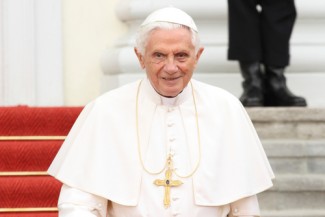Surprise resignation of Pope Benedict XVI makes canon law a hot topic

Pope Benedict XVI. vipflash / Shutterstock.com
The surprise news that Pope Benedict XVI plans to resign at the end of the month sets the stage for the first election of a new pope in nearly 600 years under circumstances in which the former pope is still around to participate.
However, the pope, because he is 85 years old, would not be eligible to vote on his successor in a secret conclave with the Vatican’s College of Cardinals, unless he changes the rules before his exit, Rev. Robert J. Kaslyn tells the Wall Street Journal Law Blog (sub. req.). He is the dean of the Catholic University of America’s School of Canon Law.
Those who do vote must be under 80 years old, Kaslyn notes.
The pope nonetheless is expected to have considerable influence over the process, since he himself selected most members of the College of Cardinals. And, because there is no mourning period to observe, the selection of his successor can be put on a fast track, the Associated Press reports.
Benedict’s announcement Monday that he planned to resign due to his physical frailty and spend the rest of his life in a cloistered monastery stunned those who heard—and understood—it. However, because it was made in Latin, several of those present were confused about what he had said, according to a Vatican spokesman.
Additional coverage:
National Post: “Pope Benedict XVI resigns due to ‘deteriorating’ health, Canadian Marc Ouellet favourite to succeed him”
New York Times: “Catholics React With Shock, Sympathy and Muted Criticism”
STV News: “Pope Benedict XVI’s surprise resignation ‘saddens’ Cardinal O’Brien”



